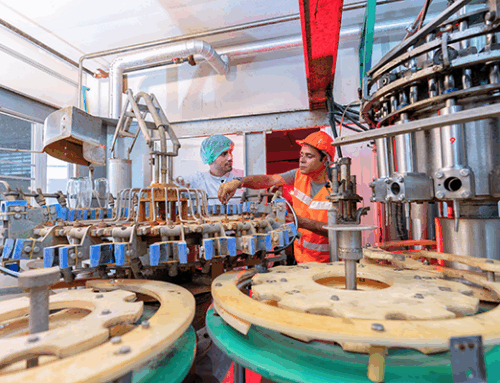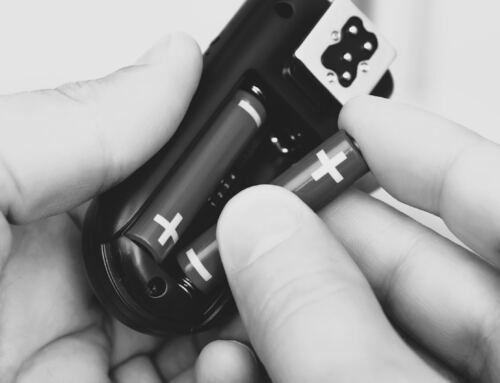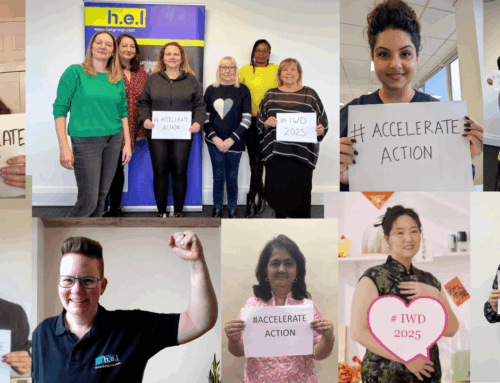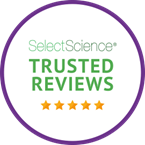I am so used to writing about science that writing in my own voice and my own experience does not sound right. My name is Dr Mario Toubes-Rodrigo, and I am the Global Applications Leader at H.E.L. The name might be familiar to you if you have been keeping up with our video series H.E.L Explains. However, being an active science communicator and holding this position is only one tiny part of my identity. We, human beings, are incredibly multifaceted, and each one of those parts, when combined, produces the complex puzzle that we are. Another aspect of what makes me who I am is that I am a very proud gay man, and throughout my life, I have encountered countless pushbacks against that part of me. One of the most critical examples was the lack of role models in my field when I was growing up. There was no one like me that I could relate to, making me feel like “I didn’t fit”.
When you are in this position, you can choose one of two options: you either hide in a corner and try to keep that part of you silent, or you become the kind of person you would have liked to meet when growing up to inspire you. So, when presented with those two options, I decided to opt for the second one.
During my years as an academic, first at Manchester Metropolitan University and then the Open University, I attended several LGBTQ+ science events, such as the LGBTQ+ STEMinar and the Out Thinkers event. These events allowed me to meet other queer scientists, real trailblazers who inspired and empowered me. I am lucky enough that after the years, I can count some of them as friends who have helped me push myself forward and step out of my comfort zone. One of these people is Dr James Lea at the University of Liverpool. He was approached by Out in STEM (oSTEM) for a Q&A panel for students at the University of Birmingham, and due to previously agreed commitments, he could not make it. However, he kindly put my name forward. When I received the formal invitation, I was beyond delighted. Somehow, I had assumed that once I had left academia, my days of inspiring students were over.
On the day, the 22nd of November 2023, I spent the morning preparing the new content to bring to this blog, and after lunch, I grabbed my Springboard t-shirt (the diversity board here at H.E.L) and jumped into my train from Euston, arriving into Birmingham University one hour before the event. Nate (treasurer) and Hannah picked me and the other three speakers and took us to the building where the panel was taking place. Shortly afterwards, the room started to progressively start to fill up with excited faces.
The first half of the event included a networking event, in which not only I got to have an informal chat with attendees, but I also met the rest of the speakers: Luciano Rila (Senior Teaching Fellow at UCL), Emma Water (Senior Researcher at Quadram Institute), and Fiona Connor (Senior Geotechnical Engineer at Gavin and Doherty Geosolutions). After 40 minutes or so of introductions and conversation exchange, we got called to the head table in the room, where an oSTEM flag had been displayed.
The chair of the panel asked us to introduce ourselves, and immediately afterward, we found ourselves immersed in a sea of questions. There are certain panels in which most of the queries come from the chair and/or organizing committee. But this was not one of those. A barrage of absolutely brilliant questions came our way from the audience. Some of the inquiries we received really resonated with me. Of course, they did. Those would have been the questions that I would have loved to ask when I was younger, and I did not have anyone to ask. Things such as “What would you do to find out if a department or university is safe for queer folk like me?” or “What kind of atmosphere is there in your workplace for LGBTQ+ people?”. But also, some questions did not shy away from more personal matters, such as “Why are you such an open person about your sexuality?”.
The stream of queries lasted one hour, and during that time, each one of the speakers answered from their personal experience and perspective. One thing was clear: these four people were in different places and came from different walks of life but shared some common experiences.
The aftermath of the panel involved some snacks and soft drinks, and the conversation became more informal. That did not stop the waves of questions coming our way and opened very interesting debates. But also, it showed how much things are improving and some abysmal differences between how the university environment was when we, the panelists, were undergraduate students, and currently.
As I reflect on this enriching experience, it is evident that the progress made in promoting LGBTQ+ inclusivity is a promise for a better tomorrow. Having the opportunity to share my own experiences and insights can help to break down barriers, inspire positive change, and provide some of the support that young LGBTQ+ individuals in science desperately need. Embracing our multifaceted identities not only enriches our lives but also paves the way for a more diverse, inclusive, and innovative scientific community for generations to come.






